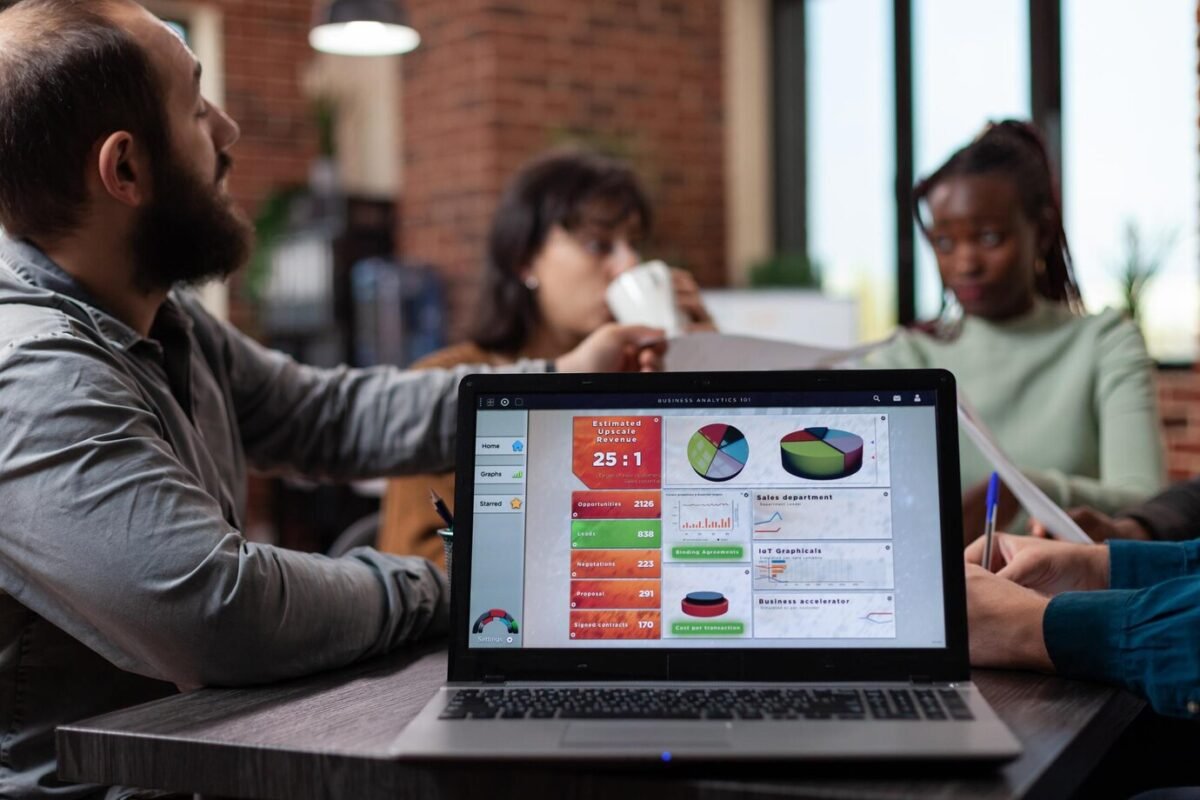In 2024, artificial intelligence (AI) is playing a pivotal role in transforming the landscape of digital marketing. From personalized customer experiences to data-driven decision-making, AI is enabling marketers to achieve more with less effort, delivering targeted campaigns that resonate with audiences like never before. This blog will explore how AI is shaping the future of digital marketing and how businesses can leverage these advancements to stay ahead of the curve.
1. AI-Powered Personalization
Personalization has always been a core component of effective digital marketing. However, with AI, the level of personalization has reached new heights. AI uses vast amounts of customer data, such as browsing history, past purchases, and social media behavior, to create tailored experiences for individual users.
How AI Improves Personalization:
- Dynamic Content: AI can analyze customer data in real-time, delivering personalized content based on user preferences, demographics, and behavior. For example, e-commerce sites can show personalized product recommendations, and content platforms can suggest videos or articles tailored to the user’s interests.
- Email Marketing: AI-powered algorithms can optimize email campaigns by segmenting audiences more accurately, personalizing subject lines, and suggesting the best time to send emails based on customer behavior.
- Behavioral Predictions: AI can predict customer behavior, anticipating needs and offering personalized suggestions or discounts to drive conversions before the user even expresses interest.
By leveraging AI for personalization, businesses can create a more engaging and relevant experience for their customers, leading to increased customer loyalty and higher conversion rates.
2. Chatbots and Conversational AI
Chatbots have been around for years, but advancements in AI are making them more intelligent, intuitive, and capable of handling complex customer interactions. In 2024, AI-driven chatbots are transforming customer service and engagement.
Benefits of AI Chatbots:
- 24/7 Customer Support: AI chatbots can provide real-time assistance to customers around the clock, helping answer questions, solve problems, and guide users through the buying process without human intervention.
- Seamless User Experience: Chatbots can deliver personalized responses based on customer data, offering tailored suggestions and services. They can even recognize returning users and remember previous interactions, making the experience more seamless and efficient.
- Lead Qualification: AI chatbots can qualify leads by engaging visitors in meaningful conversations and collecting relevant information, such as email addresses or specific preferences, before passing them on to a human agent or sales team.
By utilizing chatbots, businesses can improve customer satisfaction, reduce operational costs, and increase the speed of customer service, all while providing an AI-powered, personalized experience.
3. AI in Content Creation and Optimization
Creating high-quality content is essential for any digital marketing strategy, but it can be time-consuming and resource-heavy. AI is now helping marketers optimize content creation by automating parts of the process and even generating content itself.
How AI is Transforming Content Creation:
- Content Generation: AI-powered tools like OpenAI’s GPT models can generate articles, blog posts, and social media content based on specific inputs and keywords. This speeds up the content creation process and allows businesses to scale their content efforts without sacrificing quality.
- SEO Optimization: AI tools can analyze search trends, keywords, and competition to suggest content topics, keywords, and optimizations that will boost visibility on search engines.
- Content Curation: AI can help marketers curate relevant content for their audience by analyzing user behavior, preferences, and engagement patterns. This allows brands to share valuable, highly relevant content that resonates with their followers.
By automating repetitive tasks in content creation and optimization, AI allows marketers to focus on strategy and creativity, while improving efficiency and effectiveness.
4. AI-Driven Ad Campaign Optimization
AI is also revolutionizing digital advertising, helping businesses create smarter ad campaigns that are more targeted and cost-effective. Traditional advertising methods often relied on broad targeting and guesswork, but AI is changing that by analyzing data in real time and optimizing campaigns for the best results.
AI Applications in Advertising:
- Ad Targeting and Segmentation: AI can analyze massive amounts of customer data to identify specific audience segments and tailor ads based on demographics, interests, browsing behavior, and purchase history. This leads to highly targeted campaigns with improved relevance and higher engagement rates.
- Bid Optimization: AI can optimize bidding strategies in real-time, adjusting bids based on variables such as the user’s location, time of day, device, and more. This ensures that your ad budget is spent efficiently and drives maximum return on investment (ROI).
- Predictive Analytics: AI can predict the future performance of ad campaigns by analyzing historical data and current trends. By using predictive analytics, marketers can make proactive decisions to adjust campaigns for better results.
With AI-driven advertising, businesses can target the right audience with the right message at the right time, optimizing their advertising budgets and maximizing campaign performance.
5. Enhanced Data Analysis and Insights
In digital marketing, data is king. AI’s ability to analyze vast amounts of data in real-time is one of its greatest strengths. With AI, businesses can gain deeper insights into customer behavior, campaign performance, and market trends, leading to more informed decision-making.
AI-Driven Analytics Benefits:
- Customer Insights: AI tools can identify patterns in customer behavior, helping businesses understand customer needs, preferences, and pain points. This allows for more precise targeting and better customer segmentation.
- Predictive Modeling: AI can predict future trends, customer behavior, and market dynamics based on historical data. This helps businesses stay ahead of the curve and adjust their strategies accordingly.
- Automated Reporting: AI-powered analytics platforms can automatically generate detailed reports and dashboards, saving time and resources. Marketers can access up-to-date insights with ease, enabling more effective decision-making.
By leveraging AI for data analysis, businesses can make more strategic decisions, optimize campaigns, and improve overall marketing performance.
6. AI-Powered Social Media Marketing
Social media marketing is another area where AI is making a significant impact. AI is helping businesses understand social media trends, improve engagement, and even automate content distribution.
AI in Social Media Marketing:
- Social Listening: AI tools can monitor social media platforms for mentions of your brand, competitors, or industry trends, giving you valuable insights into public perception and customer sentiment.
- Automated Content Scheduling: AI-powered social media tools can automatically schedule posts at optimal times based on audience behavior, ensuring maximum reach and engagement.
- Sentiment Analysis: AI can analyze customer interactions on social media to determine the sentiment behind comments, reviews, and messages. This helps businesses understand how their brand is perceived and make adjustments to improve customer satisfaction.
By integrating AI into social media strategies, businesses can increase their reach, improve engagement, and gain deeper insights into customer opinions.
7. The Future of AI in Digital Marketing
As AI technology continues to evolve, the possibilities for its application in digital marketing are virtually limitless. In the near future, AI will likely play an even more integral role in shaping marketing strategies, with advancements in natural language processing, machine learning, and computer vision paving the way for more sophisticated and seamless experiences.
Some potential developments include:
- AI-Driven Virtual Assistants: AI-powered assistants could further streamline customer interactions, providing real-time, voice-based support across multiple channels.
- Hyper-Personalization: AI could enable deeper levels of personalization, predicting user behavior and preferences with even greater accuracy, creating unique experiences for every individual.
- Advanced Automation: As AI continues to improve, we can expect more advanced levels of marketing automation, from content creation to campaign optimization, providing marketers with the tools they need to drive success without overwhelming their teams.
Conclusion
AI is undeniably transforming the digital marketing landscape in 2024. By embracing AI-powered tools and technologies, businesses can enhance personalization, improve customer engagement, optimize ad campaigns, and gain valuable insights into their marketing performance. As AI continues to evolve, the opportunities for digital marketers to innovate and drive success will only grow, making AI an essential component of any forward-thinking digital marketing strategy.
By staying ahead of AI trends, businesses can leverage these innovations to achieve more targeted, efficient, and impactful marketing campaigns.












